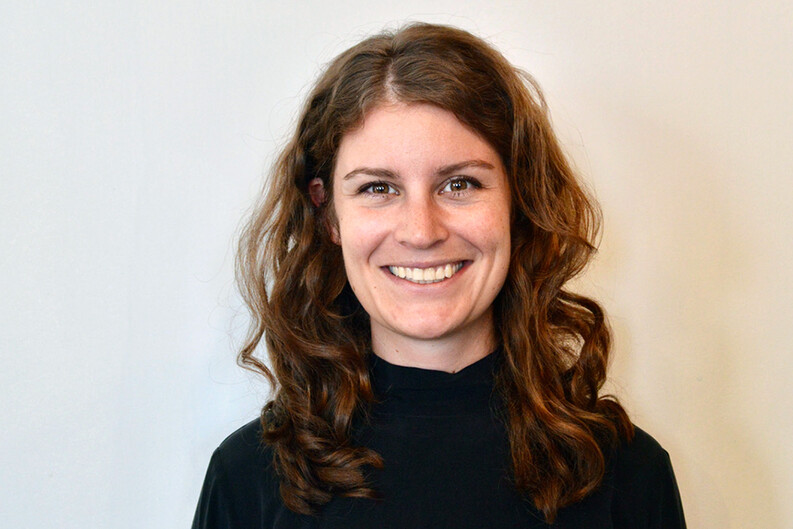Q&A: Liman Fellow Sophie Angelis ’21 on Making Prison More Dignified, Less Painful

Sophie Angelis ’21, a Liman Fellow4 at Rights Behind Bars in Washington, D.C., works to improve conditions for older prisoners while simultaneously securing their release.
At Yale Law School, Angelis was a student director of the Green Haven Prison Project and a student member of the Lowenstein Clinic, where she supported litigation and legislation to change conditions in Connecticut prisons. Previously, she studied prisons in Norway on a Fulbright fellowship. Angelis graduated from Harvard College in 2013.
What inspired you to become a Liman Fellow?
I volunteered at Prisoners’ Legal Services of Massachusetts for the first time in 2015. I had never thought about being a lawyer before then, and I didn’t know very much about prisons. But I loved the work. I decided I wanted to represent incarcerated people who are fighting for a life that is just a little more dignified and a little less painful. I am so fortunate to have a Liman Fellowship, which now — six years later — supports me in doing exactly that. I continue to be inspired by the lawyers and prisoners’ rights attorneys I have met and worked with along the way. I am also inspired by people in prison who — by the thousands — advocate for themselves in court every year.
Tell us about your current focus at Rights Behind Bars.
I focus on representing people in prison who are challenging their conditions of confinement. Most of my clients are older adults in prison, which means they require accommodations for age-related disabilities and in some cases are eligible for compassionate release. I have represented clients in federal appellate courts who are bringing ADA claims, and clients in Massachusetts Superior Court who are seeking release on medical parole.
What has been one of the most memorable moments of your Liman Fellowship so far?
Prison degrades those it incarcerates in so many ways, some of them obvious and some of them very subtle. For example, I have talked to many people in Virginia state prisons who have been attacked by dogs, which the guards use to control incarcerated people. Those conversations are very memorable.
“I am gaining more of an appreciation for how people in prison find creative ways to advocate for themselves in the courts.”
—Sophie Angelis ’21
Has your work evolved since you started? Have there been any surprises?
To be honest, my job is full of surprises. I am so green that everything feels new. In the few months since I started, my work has expanded in some very natural but also unexpected ways. For example, because I am connected to Massachusetts through my work on medical parole, I am now contributing to litigation on two other matters in the state. One is an excessive force case that involved wide-scale and racialized violence at a state prison. Another involves seeking immigration relief for a client based on abuse they suffered while in immigration detention. This immigration matter puts to unexpected use the knowledge I’ve gained about judicial review of agency decisions in state court (an important part of medical parole cases).
Something else that has surprised me — though it shouldn’t — is the determination and legal creativity of some of our clients, particularly in the appellate practice. We connect with these clients after they have brought cases pro se — without an attorney — in the district courts and lost. I am gaining more of an appreciation for how people in prison find creative ways to advocate for themselves in the courts.
What do you hope to accomplish during your fellowship?
To get people out of prison, and to make prison a little less degrading and a little less painful for people who are incarcerated there. Beyond that, I hope to develop skills and gain knowledge that will make me a better advocate in the future.
Update: In January 2022, Angelis won her first medical parole case in Massachusetts state court.
The Arthur Liman Center for Public Interest Law5 promotes access to justice and the fair treatment of individuals and groups seeking to use the legal system. Through research projects, teaching, fellowships, and colloquia, the Liman Center supports efforts to bring about a more just legal system.


